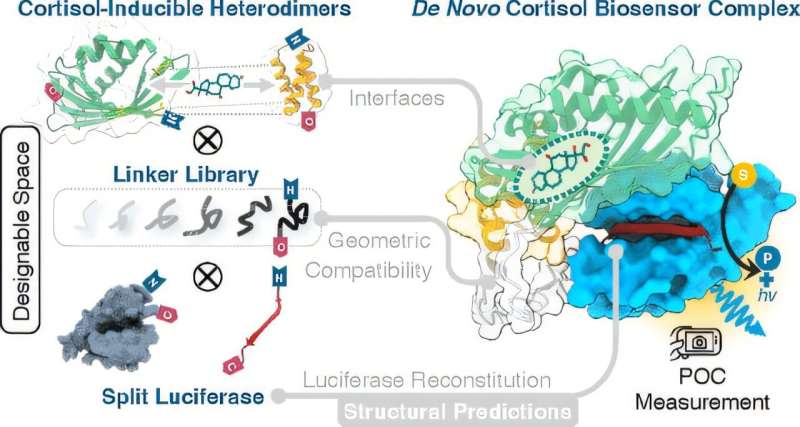Traditionally, cortisol levels must be measured in a doctor’s office or other clinical setting. But a new advance in the design of artificial biosensors paves the way for point-of-care testing and diagnoses with far greater accuracy than is currently available.
Andy Yeh, an assistant professor of biomolecular engineering at the University of California, Santa Cruz, has invented an artificial, luminescent sensor that binds with cortisol in the blood or urine and then emits light to indicate the levels of the stress hormone in the body.
A study in the Journal of the American Chemical Society demonstrates that this technique can detect cortisol across all levels relevant to human health.
Yeh demonstrated that this biosensor can be used in combination with the camera on a smartphone to enable people to measure cortisol levels at home or in a clinic, with high levels of sensitivity and without the costly instrumentation of the lab, greatly expanding access to accurate measurement of this important health indicator.

